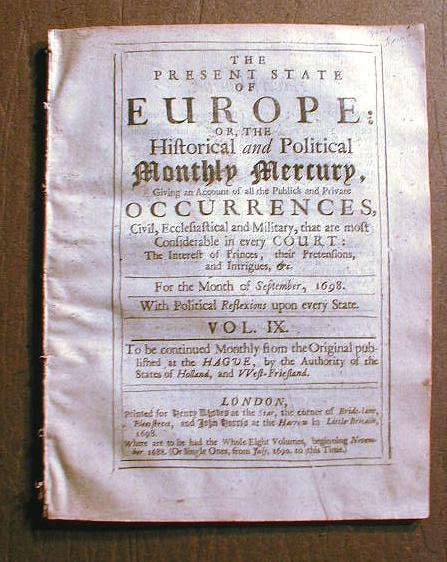
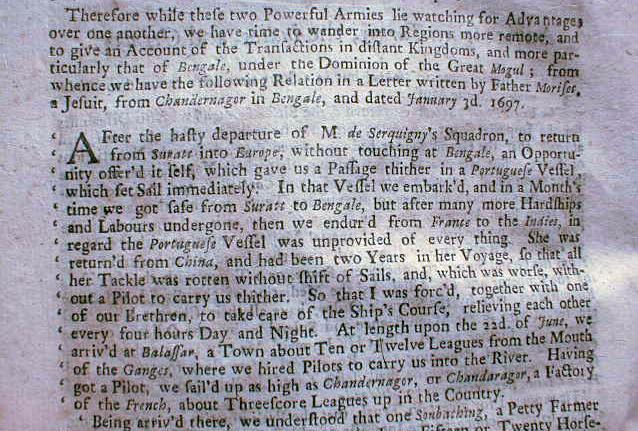
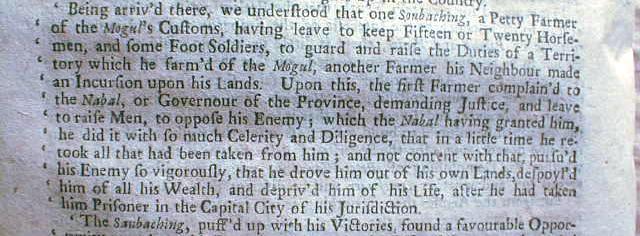
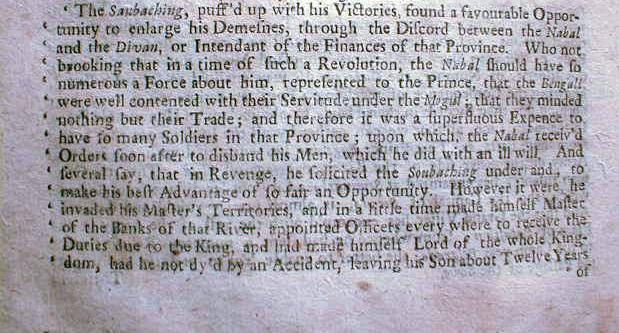
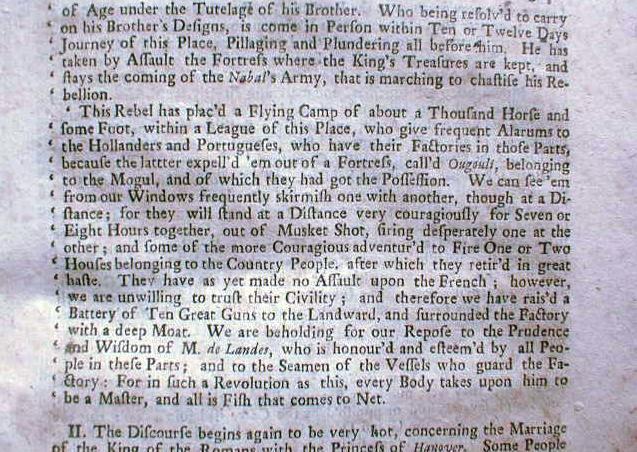





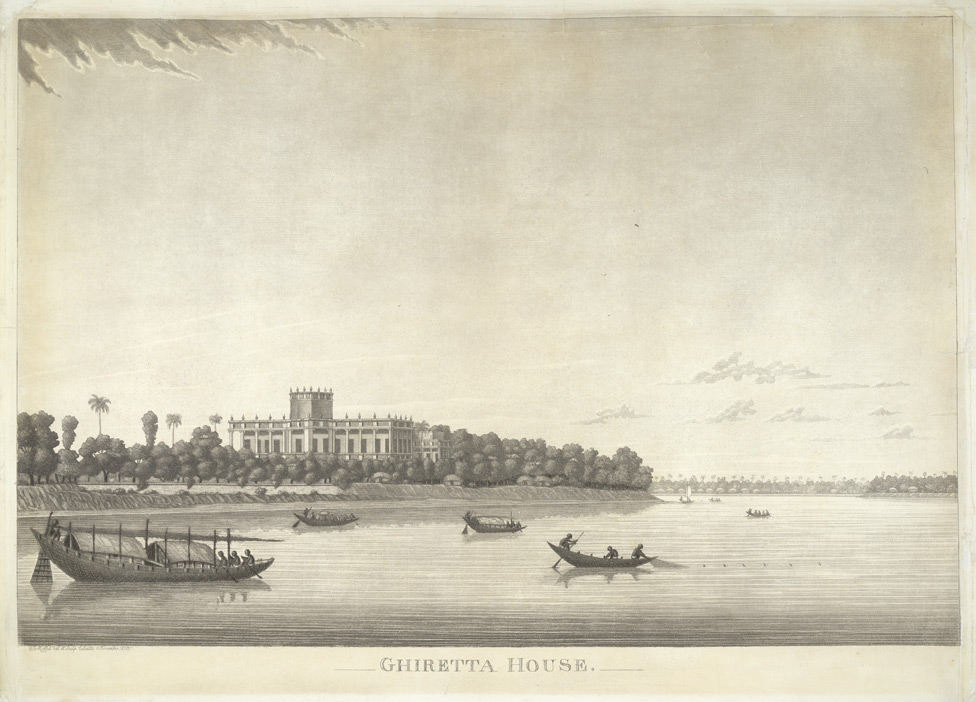
*Ghiretta House, by James Moffett, 1800* (BL), the country mansion of the French governors of Chandernagore
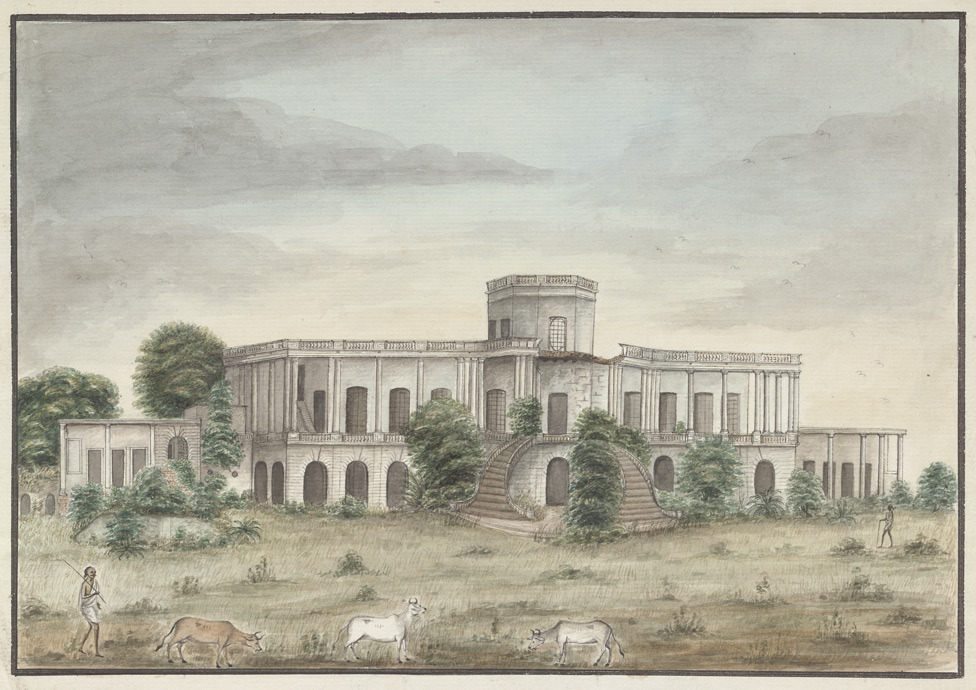
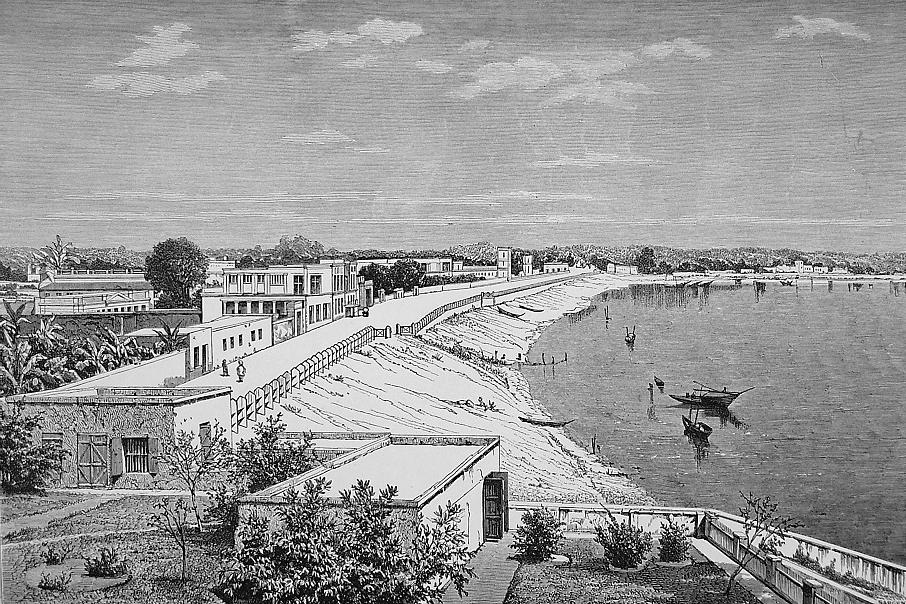
Chandernagore, in a wood engraving by Bickers & Son, London, 1878; *a larger scan of this engraving*
Source: ebay, Nov. 2005
From the original description:
"Re-entering our railway carriage, within an hour we came to a pause again; but this time on French ground, at Chandernagore. A few steps from the station we perceived with emotion the tricolour flag proudly waving above the trees: soon we were in the midst of fellow-countrymen and friends, and, for the first time in the course of four years, heard the sound of the French tongue pronounced by French lips. And yet, after this first emotion, which is always felt on setting foot on ground sheltered by the national flag, we could not here avoid feeling a heaviness at heart on casting a glance around. What! does this spot of earth of a few square miles—this heap of low, dirty huts, invaded by water and vegetation—represent all our Indian empire in the north? Dull streets without life, bazaars without trade, a harbour without vessels,—such at the present day is Chandernagore, which in 1740 eclipsed Calcutta and governed Bengal. Why does France persist in retaining this insignificant spot of ground? Is it to remind us what we might have been in India, and of what we are? Is it for the military importance of a place where treaties forbid us to keep more than fifteen soldiers? Would it not be better to efface all these melancholy souvenirs, and. to withdraw our flag from a locality in which it only receives humiliations? Unless, indeed, the tribute of three hundred cases of opium, representing from 200,000 to 300,000 francs, which England pays us on the condition that we shall not interfere with her monopoly, be deemed a sufficient compensation for these humiliations.
Still, Chandernagore must be admitted to possess certain advantages; such as a very picturesque position on the right bank of the Hooghly, fine sites, and a comparatively salubrious climate. If, therefore, it was resolved that we should maintain this possession, at the very least these natural advantages should have been utilised. An unexpected opportunity occurred about fifteen years ago, when the railway going up towards Delhi was being laid out, and Ghandemagore was proposed to be crossed by the line. A company was formed at Calcutta to convert our colony into a sort of St. Cloud of the Indian capital: villas, a theatre, and other places of amusement were to be built there; in a word, Europeans were to be attracted to the spot, and to bring life into it: and, by way of compensation, the company asked of the French Government the cession of the ground necessary for the establishment of the line and of a station. The project was sent to Paris to be submitted to the superior authorities, whence it returned after a long delay. The Government consented to make the concession, but on the condition that all the men employed by the company on the line and at the station situated on French territory should be French. This was most ingenious! And what was the result? The English company abandoned its project, and made the line pass outside our territory, so that the railroad now carefully avoids our colony, and the station, instead of being in the town, is two miles away from it."
== Indian Routes index == Indian Routes sitemap == Glossary == FWP's main page ==